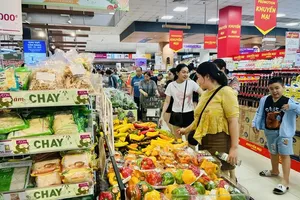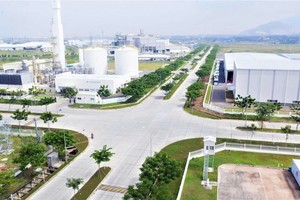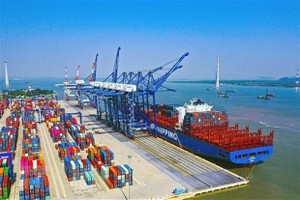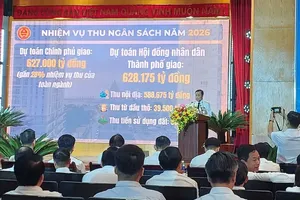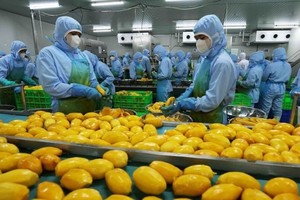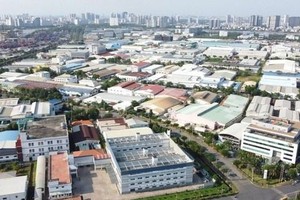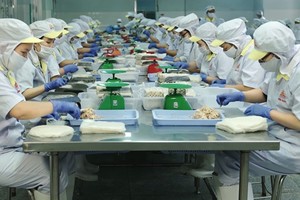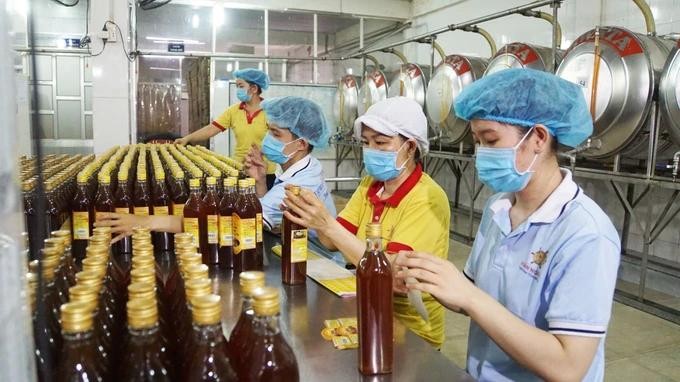
This is the reality faced by many Vietnamese enterprises in the context where major export markets are tightening technical barriers and applying dense trade defense measures against imports from Vietnam. Several product categories are subject to anti-dumping duties.
The latest information from the Ministry of Industry and Trade indicates that the U.S. Department of Commerce (DOC) has published its final conclusion on the second sunset review of anti-dumping duties for wind towers (a crucial part of the wind energy system) imported from Vietnam. According to the DOC, the average anti-dumping duty for this product group remains at 58.24 percent. However, the agency also recommends that new Vietnamese exporters (if any) should contact the DOC before exporting to calculate their individual tax rates; otherwise, they will face the 58.24 percent anti-dumping duty.
Furthermore, the DOC has initiated a second administrative review of anti-dumping duties on Vietnamese honey. The agency is currently reviewing the list of honey exporters to the United States.
Previously, the DOC imposed duties of over 400 percent, which made Vietnamese honey exporters stop exporting honey in the U.S. market in 2022. Recently, Vietnamese enterprises have been striving to reduce the tax rate to below 60 percent, allowing honey products to re-enter the U.S. market.
The situation becomes even more concerning as several major export markets for Vietnam have established policy barriers. For instance, the Taiwan Cement Manufacturers’ Association (China) has officially initiated an anti-dumping investigation against cement and clinker originating from or imported from Vietnam. The European Commission (EC) has also issued a notice to initiate an anti-dumping investigation against certain hot-rolled steel products of Vietnamese origin, including stainless steel or grain-oriented electrical steel; specialized high-hardness tool steel; and non-coiled steel.
Chairman Nguyen Ngoc Hoa of the Ho Chi Minh City Business Association highlighted that the United States, India, and Australia are the countries with numerous anti-dumping cases related to Vietnamese exports. He added that these countries launched investigation on various product categories including agricultural products, processed foods, textiles, fibers, steel products, wood, aluminum, copper, rubber, plastics, chemicals, and construction materials. These investigations primarily target export product groups with turnovers ranging from millions to billions of US dollars.
Lu Nguyen Xuan Vu, CEO of Xuan Nguyen Corporation, analyzed that if we consider agricultural and food products separately, Vietnam ranks among the top 10 largest exporting countries globally. Over 75 percent of the export turnover in this sector belongs to Vietnamese enterprises, with the remaining portion attributed to foreign-invested companies.
Additionally, the raw materials used in production are predominantly sourced within Vietnam. Explaining for some products being subject to anti-dumping duties, he pointed out that the lack of connectivity and price manipulation in trade has resulted in punitive anti-dumping tax rates. A prime example is the ongoing investigation into honey. To secure orders, Vietnamese exporters significantly lowered the purchase price of domestic raw materials from farmers. Consequently, when investigated, the export market responded by imposing very high anti-dumping duties on honey products, affecting the overall production activities of the entire industry.
Furthermore, Mr. Nguyen Ngoc Hoa mentioned misrepresenting origin through foreign investment in Vietnam. Many businesses have been subject to CBPG taxation in their home countries, and to avoid this tax, they choose new investment solutions or expand their investments in Vietnam.
To prevent this situation, it is necessary to reevaluate investment attraction. According to him, relevant ministries should assess the overall internal development capacity, strengths, and weaknesses of each industry. Based on this, they can prioritize investment attraction and also be firm in rejecting industries where Vietnamese businesses are already experiencing good growth. Instead, they should promote additional investment activities and enhance the internal capacity of Vietnamese enterprises by connecting technology transfer and capital from foreign enterprises to domestic ones. This approach would create additional development space for Vietnamese businesses, focusing on supporting reasonable land funds, favorable capital policies, tax incentives, and fees, and improving training programs to enhance the workforce.
Based on the above-mentioned analysis, businesses recommend that the Ministry of Industry and Trade promptly establish domestic trade defense barriers for imported goods from foreign countries. Additionally, they suggest implementing an effective plan to build and operate an early warning system for trade defense, enhancing state management to prevent evasion of trade defense measures and origin fraud, and strengthening trade defense capabilities in the context of participating in new-generation free trade agreements
Moreover, Deputy Director Pham Binh An of the Ho Chi Minh City Institute for Development Research (HIDS) proposed that the Ministry of Industry and Trade needs to establish price floors for various industry groups to prevent domestic businesses from undercutting each other and to protect domestic production. He advised businesses to collaborate for exports, avoiding complicity in fraudulent origin practices while proactively preparing legal documents for any lawsuits. Diversifying markets and maximizing the potential of the Asian market while aiming for sustainable and diversified export markets are also crucial steps.
